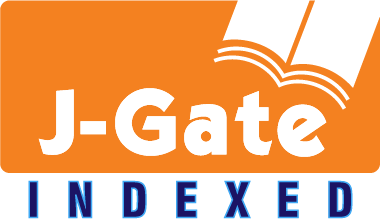YOLSUZLUK KAVRAMINA GENEL BİR BAKIŞ: PROBLEMLER VE ÇÖZÜM ÖNERİLERİ
Anahtar Kelimeler:
Yolsuzluk- Yolsuzluk Algılama Endeksi- TurkeyÖzet
Yolsuzluk problemi, ülkelerde çözüm bekleyen temel problemlerden birisidir. Çünkü, hem gelişmiş hem de az gelişmiş ülkelerde görülen yolsuzluklar ekonomide yatırım, büyüme ve gelir dağılımı gibi makroekonomik büyüklükleri olumsuz etkilemektedir. Yolsuzluklar, her toplumda farklı şekillerde görülebilmektedir. Bu çalışmanın amacı, yolsuzlukla mücadele karşılaşılan problemlere ve çözüm önerilerine genel bir bakış açısıyla yer vermektir. Bu bağlamda, yolsuzluk kavramına değinilmiş ve yolsuzluğun ülkeler üzerindeki muhtemel etkileri incelenmiştir.
İndirmeler
Referanslar
BALACHANDRUDU, K. 2006, Understanding Political Corruption, The Indian Journal of Political Science, 67 (4), 809-816.
BARDHAN, Pranab, 1997, Corruption and Development: A Review of Issues, Journal of Economic Literature, 35 (3), 1320-1346.
BEGOVIC, Boris, 2005, Corruption: Concepts, Types, Causes and Consequences, Center for International Private Enterprise Economic Reform Feature Service, 1-7.
BHAGWAN, Vishnu, 2007, Corruption & Good Governance, The Indian Journal of Political Science, 68 (4), 727-738.
BHARGAVA, Vinay, The Cancer of Corruption, World Bank Global Issues Seminar Series, October 2005.
CHETWYND, Eric, CHETWYND, Frances ve BERTRAM, Spector, Corruption and Poverty: A Review of Recent Literature Final Report, January 2003, Management Systems International 600 Water Street, SW Washington, DC 20024 USA.
CUERVO-CAZURRA, Alvaro, 2006, Who Cares About Corruption?, Journal of International Business Studies, 37 (6), 807-822.
DELAVALLADE, Clara, 2006, Corruption and Distribution of Public Spending in Developing Countries, Journal of Economics and Finance, 30 (2), 222-239.
ELIZABETH, Harrison, 2007, Corruption, Development in Practice, 17 (4/5), 672-678.
Governance for Development. World Bank, http://blogs.worldbank.org/governance/here-are-10-ways-fight-corruption (3 Aralık 2016).
GRAAF, Gjalt De, 2007, Causes of Corruption: Towards A Contextual Theory of Corruption, Public Administration Quarterly, 31 (1/2), 39-86.
GUPTA, Sanjeev, MELLO, Luiz De ve SHARAN, Raju, Corruption and Military Spending, IMF Working Paper, IMF Fiscal Affair Department, WP/00/23, February 2000,
Helping Countries Combat Corruption: The Role of The World Bank. http://www1.worldbank.org/publicsector/anticorrupt/corruptn/cor02.htm (1 Aralık 2016).
How Do You Define Corruption?. https://www.transparency.org/what-is-corruption/#define (2 Aralık 2016).
KAUFMANN, Daniel, AART, Kraay ve MASTRUZZI, Massimo, Measuring Corruption: Myths and Realities, The World Bank, December 2006. http://www1.worldbank.org/publicsector/anticorrupt/corecourse2007/Myths.pdf (4 Aralık 2016).
KPMG in Central and Eastern Europe Ltd., 2011, Measuring and Comparing Corruption.
KURER, Oskar, 1993, Clientelism, Corruption and the Allocation of Resources, Public Choice, 77 (2), 259-273.
LAMBSDORFF, Johann Graf, 2007, The Institutional Economics of Corruption and Reform, Theory, Evidence and Policy, Cambridge University Press.
LIPSEY, Roger, 2001, PwC’s Opacity Index: A Powerful New Tool for Global Investors, Journal of Corporate Accounting & Finance, 12 (6), 35-44.
MO, Pak Hung, 2001, Corruption and Economic Growth, Journal of Comparative Economics, 29 (1), 66-79.
NECK, Stephan, Measuring Corruption in Eastern Europe and Central Asia: A Critique of the Cross-Country Indicators, World Bank Policy Research Working Paper 3968, July 2006.
PAOLO, Mauro, 1998, Corruption and the Composition of Government Expenditure, Journal of Public Economics, 69 (2), 263-279.
ROHWER, Anja, Measuring Corruption: A Comparison Between the Transparency International’s Corruption Perceptions Index and the World Bank’s Worldwide Governance Indicators, CES ifo Group Munich, CES ifo DICE Report 3/2009.
RYAN, Leo V, 2000, Combating Corruption: The 21 st-Century Ethical Challenge, Business Ethics Quarterly, Globalization and the Ethics of Business, 10 (1), 331-338.
SELİGSON, Mitchell A, 2002, The Impact of Corruption on Regime Legimitacy: A Comparative Study of Four Latin American Countries, The Journal of Politics, 64 (2), 2002, 408-433.
SHLEIFER, Andrei veVISHNY, Robert W, 1993, Corruption, The Quarterly Journal of Economics, 108 (3), 599-617.
Special Report on Corruption and Development Aid, Singapore Institute of International Affairs, August 2003.
STAPENHURST, Rick, The Media’s Role in Curbing Corruption, The International Bank for Reconstruction and Development, 2000.
SWALEHEEN, Mushfiq, 2011, Economic Growth with Endogenous Corruption: An Emperical Study, Public Choice, 146 (1/2), 23-41.
TANZI, Vito, 1999, Governance, Corruption and Public Finance: An Overview, Governance, Corruption and Public Financial Management (Ed.Salvatore Schiavo-Campo), Asian Development Bank, 1-17.
TAVITS, Margit, 2007, Clarity of Responsibility and Corruption, American Journal of Political Science, 51 (1), 218-229.
Transparency International, http://www.transparency.org/ (10 Aralık 2016).
MARTINEZ-VAZQUEZ, Jorge, ARZE, F. Javier ve BOEX, Jameson, Corruption, Fiscal Policy and Fiscal Management, USAID Press, June 2006.
WANLESS, Megan, 2013, The World’s Bank Fight Against Corruption: ‘See Nothing, Hear Nothing, Say Nothing’, Hydra Interdisciplinary Journal of the Social Sciences, 1(2), 38-48.
İndir
Yayınlanmış
Nasıl Atıf Yapılır
Sayı
Bölüm
Lisans
Yazarlar, makale Journal of Awareness’de yayınlanmak üzere kabul edildiğinde.makalenin içeriğindeki tüm telif haklarını, Rating Academy Ar-Ge Yazılım Yayıncılık Eğitim Danışmanlık ve Organizasyon Ticaret Ltd. Şti’ne devrederler. Yazarlar, patent hakları gibi telif hakkı dışındaki tüm mülkiyet haklarını saklı tutar.
Bu makalede yazar olarak listelenen herkes çalışmaya önemli, doğrudan, entelektüel katkılar yapmış olmalı ve bunun için kamu sorumluluğu almalıdır.
Bu makale daha once yayınlanmamış ve başka dergilerde yayınlanmak üzere gönderilmemiştir.










